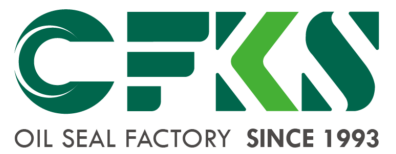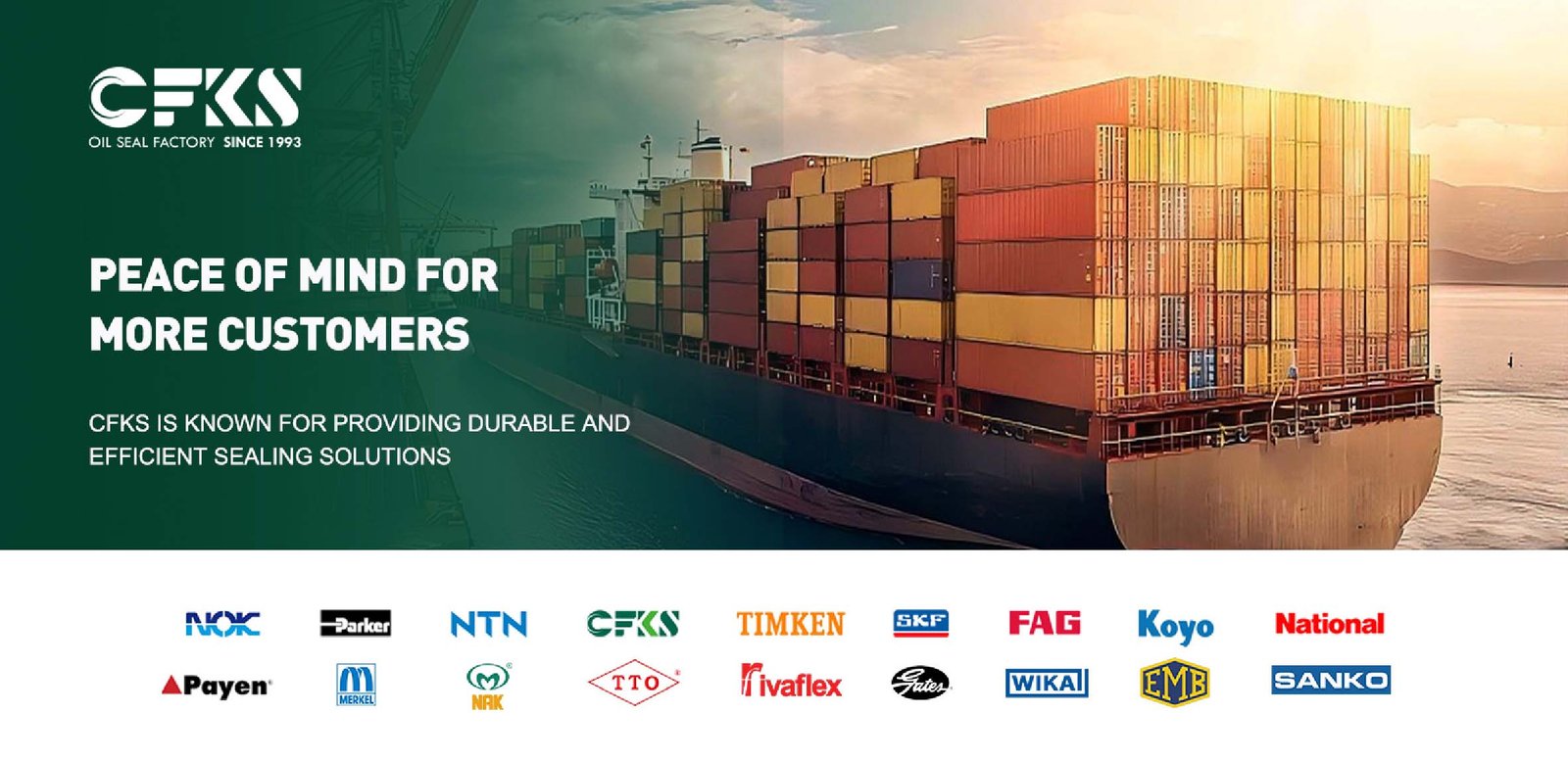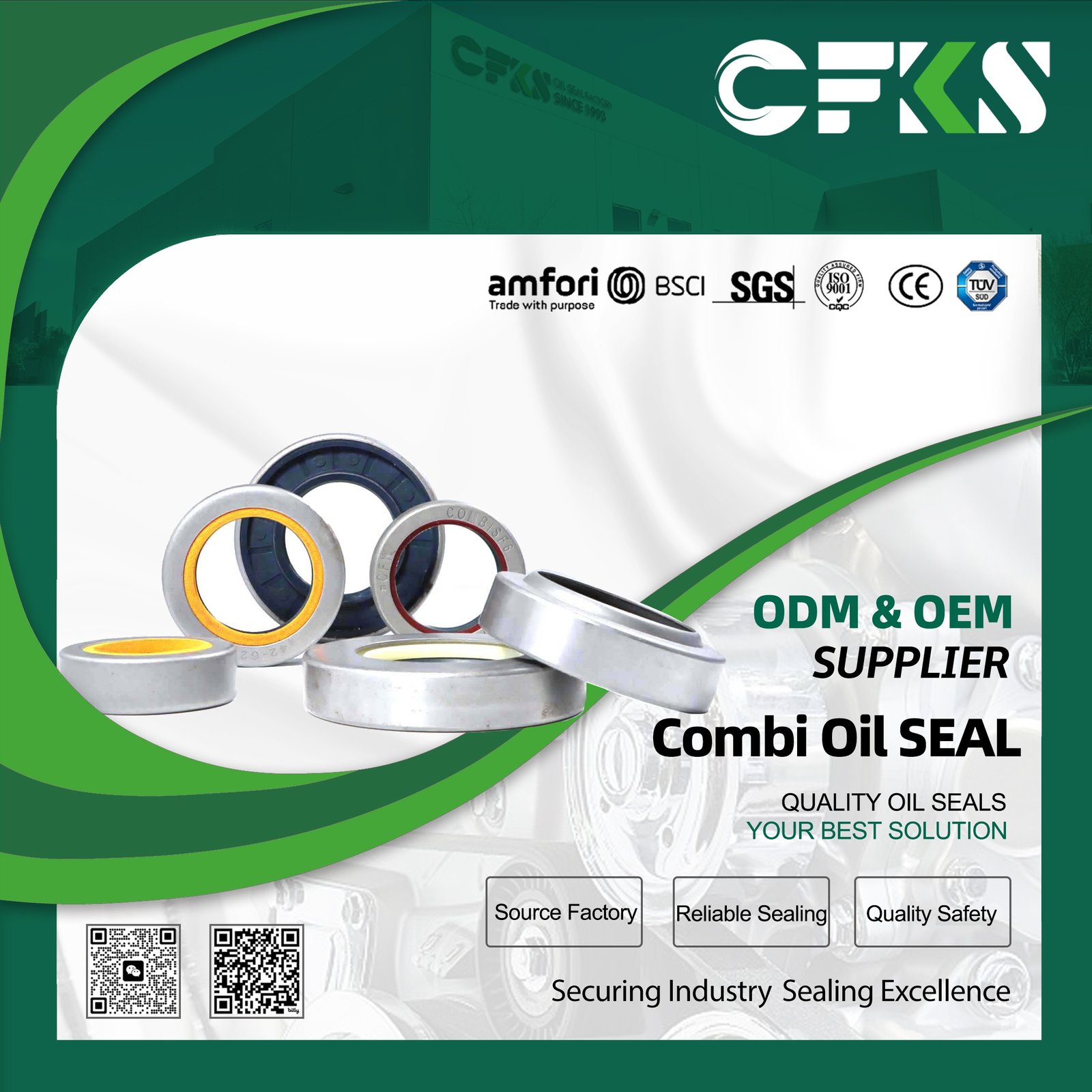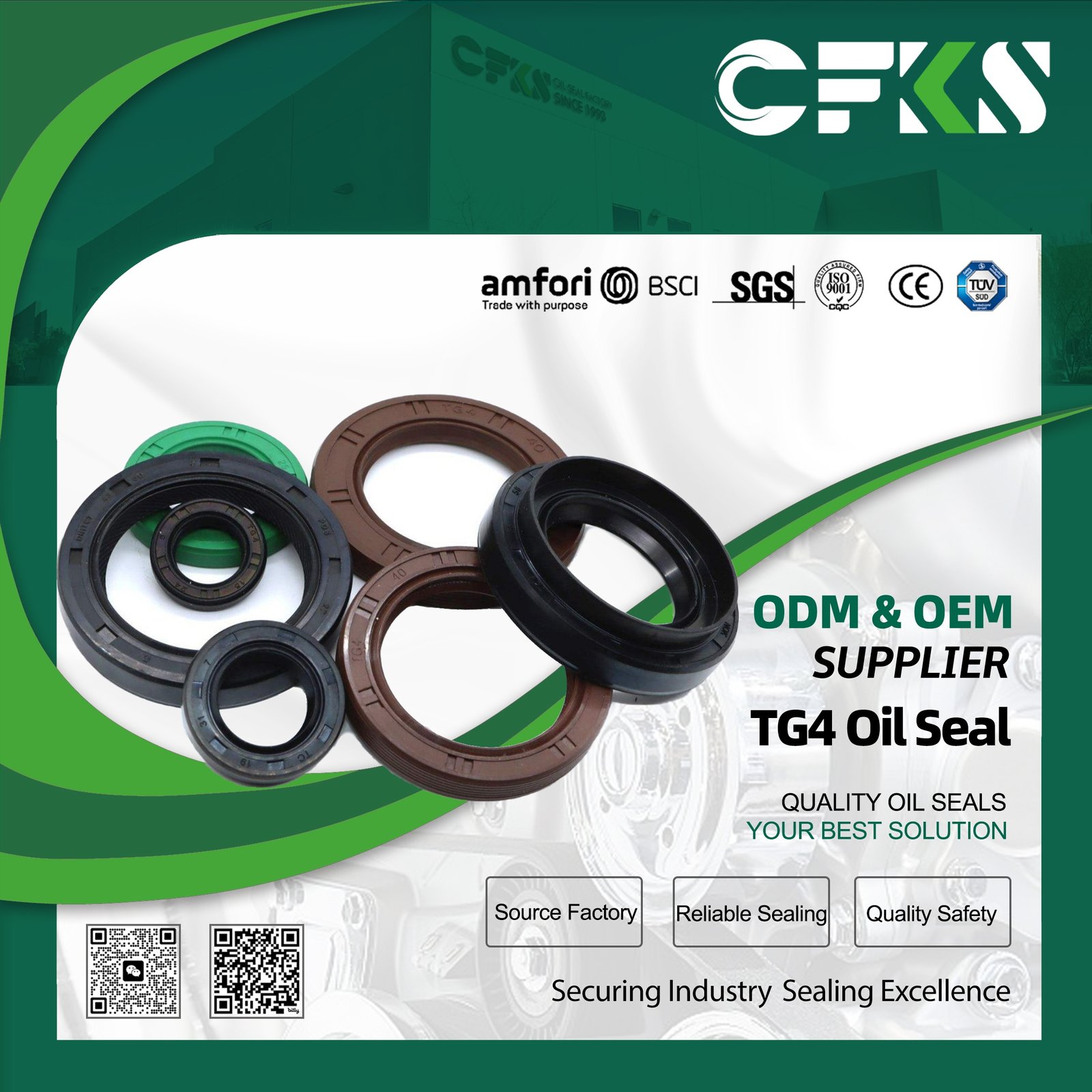Understanding Bonded Seals: Structure, Function, and Applications
🔍 Understanding Bonded Seals: Structure, Function, and Applications
Professional Insights from CFKS – Your Trusted Oil Seal Manufacturer
Bonded Seals — also known as Dowty Seals, metal rubber washers, or hydraulic sealing washers — are critical sealing components used in high-pressure static applications. CFKS, as a specialized manufacturer of oil seals and bonded seals, provides deep insight into the performance, structure, and application scope of these versatile sealing elements.
🧩 What Is a Bonded Seal?
A bonded seal is a composite gasket consisting of a metal washer (typically carbon steel or stainless steel) and a vulcanized elastomer sealing lip (usually NBR or FKM rubber) bonded to the inner diameter. This design ensures both mechanical strength from the metal ring and elastic sealing performance from the rubber.
➤ Structure:
-
Metal Ring: Provides rigid support, distributes bolt load evenly
-
Rubber Lip: Deforms elastically to seal off fluids under pressure
-
Bonding Layer: Ensures strong adhesion between metal and rubber during vulcanization
This hybrid structure makes bonded seals especially reliable for bolt head sealing, flange interfaces, and pipe thread joints, particularly under high pressure.
💡 How Do Bonded Seals Work?
When the bolt or threaded fastener is tightened, the rubber sealing lip is compressed against the mating surfaces, creating a tight seal that blocks fluid leakage. The metal ring limits over-compression of the rubber, ensuring long-term sealing performance and mechanical stability.
Bonded seals are static seals, meaning they are not designed to move relative to their sealing surfaces — making them ideal for hydraulic systems, fuel injectors, and oil pipelines where strong, vibration-resistant seals are critical.
🧪 Material Options: NBR vs. FKM Bonded Seals
CFKS offers bonded seals in two primary rubber materials:
|
Rubber Type |
Temp. Range |
Features |
Typical Applications |
|---|---|---|---|
|
NBR |
-30°C to +100°C |
Excellent oil resistance, cost-effective |
Hydraulic systems, oil circuits |
|
FKM (Viton®) |
-20°C to +200°C |
Superior chemical & high-temp resistance |
Fuel systems, chemical plants, aerospace |
The metal backing ring is typically made of carbon steel (zinc plated) or stainless steel (SS304/SS316) for corrosion resistance.
🔩 Common Applications of Bonded Seals
Bonded seals are widely used in industries where leakage control, pressure retention, and vibration resistance are vital:
-
Hydraulic and Pneumatic Equipment
-
Gearboxes and Transmission Systems
-
Oil and Gas Pipelines
-
Automotive and Diesel Engines
-
Industrial Valves and Flanges
-
Aerospace and Marine Applications
For self-centering applications, CFKS also supplies self-centering bonded seals, which simplify assembly and improve sealing reliability.
🛠️ Selection Tips for Bonded Seals
When choosing the right bonded seal, consider the following factors:
-
Size – Match inner/outer diameters and thickness with bolt/thread size
-
Working Pressure – Bonded seals can typically handle up to 400 bar and more with special designs
-
Temperature Range – Select rubber material (NBR, FKM, EPDM) based on operating conditions
-
Corrosion Resistance – Choose appropriate metal material for aggressive environments
-
Compliance – Ensure materials meet standards like ROHS, REACH, or FDA if required
✅ Why Choose CFKS Bonded Seals?
-
🛡️ Precision-engineered sealing performance
-
🔁 Available in NBR, FKM, and EPDM
-
🧲 Wide inventory of standard sizes and custom tooling available
-
🧪 Excellent compression set and chemical resistance
-
📦 Fast delivery and OEM packaging support
📌 Explore the full range of CFKS Bonded Seals now at
👉 cfksseals.com
For custom bonded seal solutions, please contact our technical support team or request a free sample.
Share this article
Latest articles
March 2, 2026







